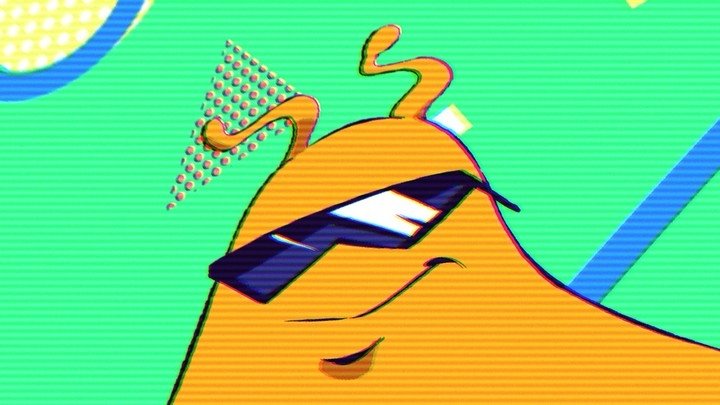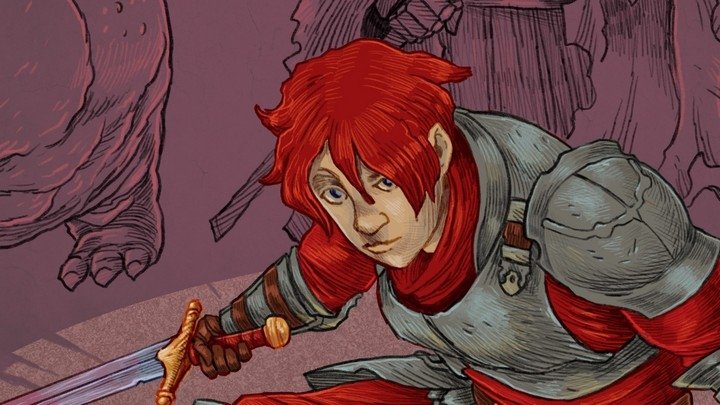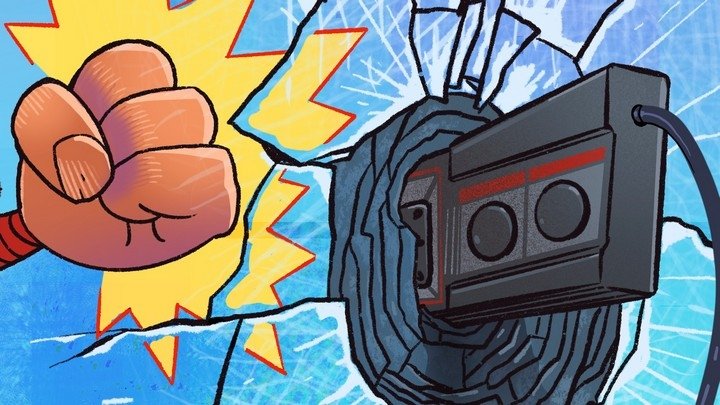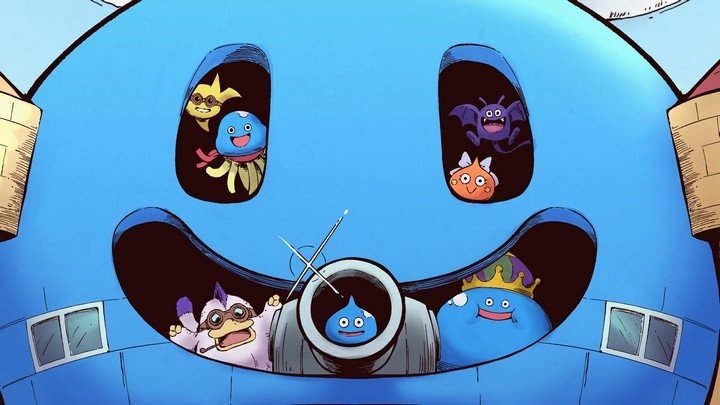Chip Tanaka's debut album Django brings a new sound to chiptunes
The venerable Nintendo and Pokémon composer has gone solo, and the result is one of the finest collections of chiptune music this year.
Through the end of the year, we'll be looking back daily at the best classic gaming news and releases of 2017. Not just remakes and rereleases of old games, but the best retro-centric new games and other classic-game-related happenings that have transpired over the past 12 months.
Hirokazu Tanaka may not be the best-known name in video game music, though you may recognize his former nom de plume from his days at Nintendo: Hip Tanaka. And anyone whose made even glancing contact with 8-bit Nintendo games has almost certainly heard his work: The upbeat ditties that played over the title screens of the Black Box NES games covered in our NES Works videos; the earworm melody of Balloon Fight's Balloon Trip mode; the haunting atmospheres of Metroid; the calliope madness of Super Mario Land; the innovative samples featured in EarthBound. Tanaka has his fingerprints all over many of the most beloved games of the ’80s and ’90s.
These days, though, Tanaka has his hands full as the president of Creatures, Inc., helping to manage the sprawling Pokémon empire while maintaining a close relationship to his old bosses at Nintendo. Those corporate duties haven't stopped him from adopting a new nickname, Chip Tanaka, and moonlighting as a DJ. Nor have they prevented him from putting together a new collection of original compositions, an album called Django. I recently had the opportunity to speak to Tanaka about his new album, and how it ties back to his work as a game composer and sound engineer in the ’80s.

Retronauts/Jeremy Parish: Am I correct in thinking Django is the first full album that you've published as a composer?
Hirokazu "Chip" Tanaka: Yes, that's correct.
JP: You've been working as a composer for more than three decades. What inspired you to make the leap into producing an album at this point in your career? What made you decide now was the time?
CT: I started performing at club events when I was around 50. And due to performing at clubs, I started composing tracks for my own performances. Several years later, the tracks I'd been composing started to pile up. That made me think of the idea of creating a solo album. So here I am — it's actually happened now.
JP: Your musical career has been a little different than many recording artists, since you began working with video games. I know soundtrack releases are somewhat common, but you're not creating specifically for an album when you write for a video game. You're creating for, you know, in-game situations. How do you think that has shaped your musical outlook?
CT: I started composing music when I was working at Nintendo. I composed music for video games, like Famicom, Nintendo Entertainment System, and Game Boy games. These games were released not only in Japan but also throughout the whole world. Through those games, people were exposed to my music, so I'm aware that people know me from my game compositions.
What I did when I created this album was to use the kind of sound that people know me from — the Famicom sound and the Game Boy sound — but I also blended that with other kinds of music, new kinds of music that I've always been listening to. I tried to create something new out of that. So, I think I could say that this is a unique way of me using my career as a game composer.
JP: When you're working in this chiptune style, you said you added in other sounds. So you don't feel like a "chiptune" album necessarily has to work with the hardware constraints of something like Famicom or Game Boy, right?
CT: I'm not tied to the idea of chiptunes so much. With this album, basically what I used is square sounds — square waves — that the Famicom or Game Boy or Game & Watch used. But I wasn't thinking about how what I did equals "chiptune."
JP: What other instrumentation and elements did you add to this beyond what you could have recorded with just, you know, original Famicom hardware?
CT: This is a difficult question to answer but…. Well, for starters, I used synthesizers to add a lot of sounds to it.
I feel like this is kind of like cooking. So let's say you have a chunk of meat and you could do all sorts of things to cook a dish with this meat. So you could boil it and make stew, or make curry, or you could just have it the way it is. Just put it on grill and have a steak. So I feel like the "meat" element was the "chiptune" part of the album, but I used the meat to cook all sorts of things, if that makes sense.
JP: What do you think this style of music allows you to do that you can't do with a live band or an orchestra? Like, how can you express yourself differently with this style of music?
CT: There are parts I composed by playing by hand, and then there are parts for which I used the synthesizer. The most important thing there for me is to see the balance — to find the perfect balance for those two parts. As I'm composing, there emerge things that I just find out of coincidence. I call them "errors," because a lot of these things don't come out the way I calculated them. But actually, they've turned out to be really good, so I just decide to keep it that way. But basically, my approach is to find the perfect balance [between deliberate and accidental] elements, and create my sound by doing that.
JP: Speaking of the sound, when I hear the name "Django," I think of western movies — spaghetti westerns. But the music doesn't really feel that way. So where did the name Django come from?
CT: Yeah, I was aware of the original spaghetti western. Also, Django Unchained, the movie that Tarantino created. But those weren't actually the reason I named my album Django.
There is a band called Django Django. A British band. They released their album in 2012. I liked this band, and also I like the sound of the word "django." That made me look the word up, and I learned that Django was a famous name in Mexico. Also django means awakening in Romani, the language of gypsies. I liked the meaning, "awakening." Because of that, I decided to name my album Django.
JP: Did you find, as an artist, that it was a challenge to step back to create a sort of vintage sound? You know, the sound of the Famicom hardware?
CT: Actually, not at all. My approach was that I wanted to create something that people have never heard. By having that as the goal, the process of creating this album was really a fresh one for me. So I never felt like I was using vintage sounds or tunes, and I never thought that I was taking a step backward or anything — say, compared to my career up to this point.
JP: Looking back at your game work now…
When you're writing an album, you have an entire sound palette to work with. When you were working on those very early Famicom games, though, they had so little space for the music and you could only include just one or two simple melodies. What was the creative process of writing for a game where you had such limited options and opportunities for creating music?
CT: It wasn't like I was composing super complicated tracks, so it wasn't as hard as people think it was. Basically, my approach was that I was creating sound for the game. Within those simple sounds, I did things like [contrast] a bigger sound and a smaller sound to express things like emotions. I also had sound effects to create besides the music. Using the sound effect and the music all together, I basically created a mood for the game. So I was never thinking that I was just composing a track for the game. I felt like I was just creating the sound world for the game.
JP: I feel like the music in a lot of those early games, like Balloon Fight and Gyromite, they're very jaunty. So it seems like the soundscape you went for was often very upbeat and happy.
CT: Those titles that you just named were actually titles that I tried to mock drum sounds in. I used one sound channel for a drum beat. And that's how I created the tracks. But I think that came about as a result of me trying to compose cute sounding track, and… yeah. That was the result. Another thing is that, back in the day, there was this electric drum set, called the Simmons. So the sound of the Simmons drums, it sounded kind of like a square wave sound.
I tried to copy the sound of the Simmons with the Famicom's square wave channel. I was doing it like: do-do-do-do [mimics game rhythm]. Back then, a lot of drummers used the Simmons drums, but one of the artists that I really liked, Sly Dunbar from Sly and Robbie, was using these drum sets. I really liked him a lot back in the day, so I bet a lot of my inspirations were taken from his play style.
JP: I feel like I can plug in an early Famicom game and know immediately like, oh. This is, this is hip Tanaka music. What's the secret to putting your fingerprint on music when you only have, you know, a few kilobytes to work in?
CT: This is a really difficult question for me to answer, because there was nothing that I consciously did to make it sound like "my" music, but…
Well, one thing I did was to use a drum kind of sound to create the rhythm. I also really tried to take good care of the melody. And when creating the melody, I wasn't always thinking of creating a melody for somebody to sing, like a vocal line. But I've never tried to create a track to make it sound like me, or to include "Hip Tanaka-ish" things in the tracks.
I've been listening music since I was three or four years old. From then up to this day, I've been listening to all sorts of music, and because of that, I have this huge library of music inside of me. A lot of melodies that I've listened to. Drum beats I've listened to. All sorts of things. So I feel like whenever I'm creating music on my own, maybe like some of the stuff from this big library that I have is just sort of bleeding out of me and gets mixed up, blended into my composition. Maybe that's what creates my style, perhaps.
JP: I feel like the music you created for, say, the title screen of Duck Hunt is very different than the work you did years later on later Famicom games like EarthBound Beginnings. That sort of evolving hardware, working with that and composing for that — what was that like for you?
CT: So basically, because of the evolution of the hardware… Well, Famicom evolved into Super Famicom, and as the Famicom evolved, I was evolving, too — gaining experience. What I could do or what I could express through music has changed. So, for example, the music for Duck Hunt. I could say that was like, me in elementary school. But then for EarthBound Beginnings, that would have been more like me in college. So what I could express — what elementary school kid can express and what college kids can express — is very different.
However, I can't really say which is better or which is worse. I think there's a 50/50 chance of either of them being better than the other. So I'm not saying which is great or not, but I think that that might have been the difference. A more experienced me, or me without experience, basically.
JP: Looking back at the classic consoles you worked on — Famicom, Game Boy, Super Famicom — what did you like most about working on each of those different systems? What did you find most challenging on each system?
CT: Actually, I don't feel like there was any good or bad to any of them. Basically, my approach was always to simply accept it as it is and try to make the most out of it. Each console's hardware had it's own traits, but I never thought one was better than the other. Like, the Famicom only had three sounds. The Super Famicom has eight sounds. But I never thought that the Super Famicom is better than the Famicom. I just accepted them as-is and created music while trying to make the most out of each hardware.
JP: How has creating the music for Django been different than composing for those games?
CT: For the music that I composed for Famicom, Game Boy, Super Famicom… basically, a game existed, and what I did was to add onto the game world as I created the soundtrack. Or sound effects. But with Django, I created Django at home, with the hope that a lot of people would listen to and enjoy the music. So that's the difference.
Special thanks to Mr. Tanaka and to Hiroko Minamoto of 8-4 Ltd. for coordinating this interview. You can purchase Django on iTunes and as either a digital or physical release via Bandcamp.




